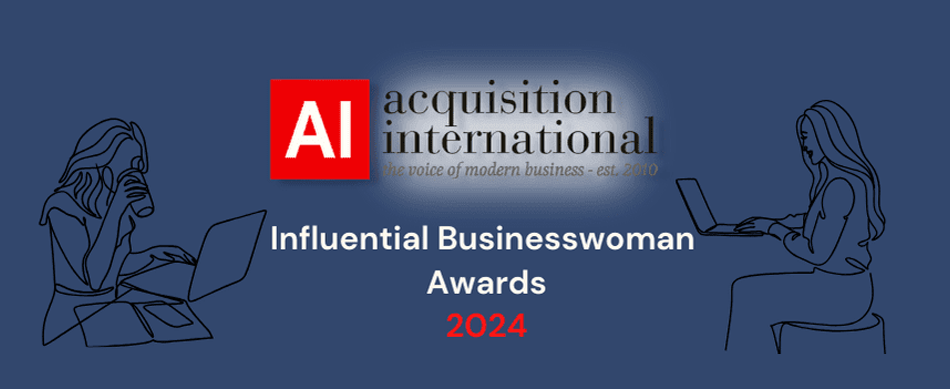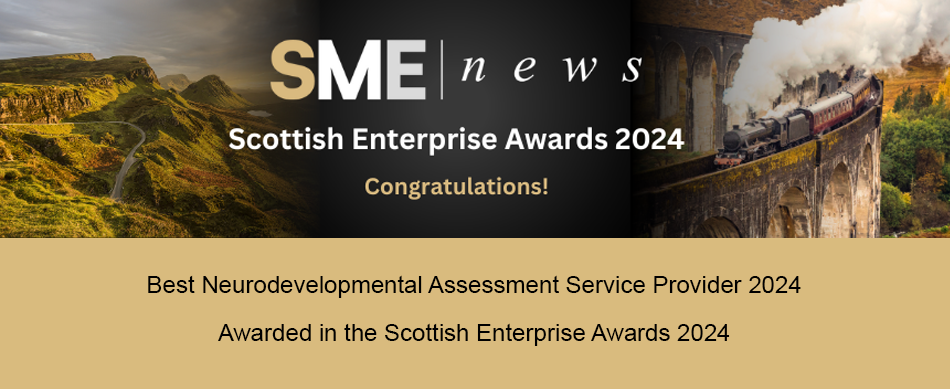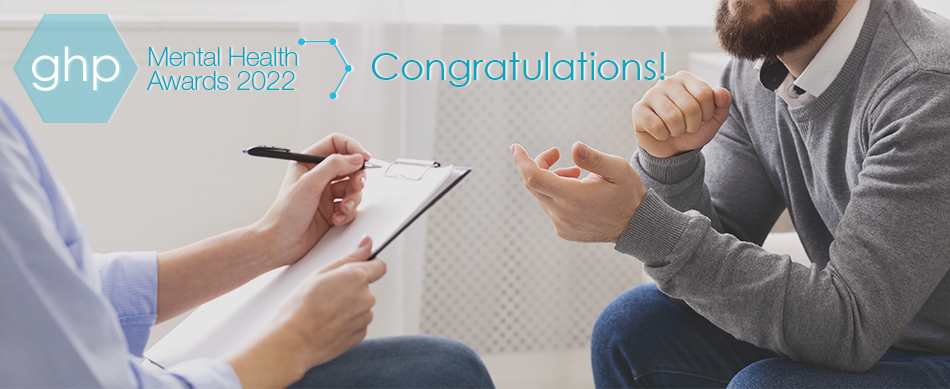ADHD Assessment
Enlightened Minds can provide formal assessment and diagnosis of Attention Deficit Hyperactivity Disorder (ADHD) for Children (age 6+) & Adults
Attention deficit hyperactivity disorder is a neurodevelopmental difference, which is normally recognised in childhood but it can be lifelong. It can involve difficulties with attention, concentration, hyperactivity and impulsivity, which are not related to any intellectual disability. It has two classes of symptoms- inattentive and hyperactive/impulsive. Inattentive symptoms can include a lack of focus, inability to complete tasks, problems following instructions or forgetfulness. Hyperactive / impulsive symptoms can include fidgeting, lots of energy, problems sitting still or doing one thing, talking too much, talking at inappropriate times or impulsive behaviour. It is not uncommon to have a combined presentation where both types of symptoms are present.
Often, the primary course of treatment sought for ADHD is medication. However, this option may not be for everyone and for some a combination of medication and therapy and/or coaching may be required.
Psychological therapy can also play an important part in the treatment of the issues associated with ADHD. This may include Cognitive Behavioural Therapy (CBT), or help with social integration, or activity planning to ensure the person is supported to meet their goals in school, work and home.
Mindfulness and relaxation techniques can also be helpful to support with focus and develop self-soothing skills at times when one cannot be active. In therapy, the therapist can take on a quasi-coaching relationship, while using more traditional counselling/therapy methods to help the individual work on any emotional issues and concerns the person may have.
At Enlightened Minds, we offer a free ADHD screening assessment with a Chartered Psychologist. This initial step allows us to assess whether further assessment is warranted, before deciding to undertake the formal, full ADHD diagnostic assessment. To book your free screening assessment, please click the button below.
To ensure safe receipt of your screener outcome and by-pass any spam filters, please add clinic@enlightenedminds.co.uk to your email contacts list.
Awards & Achievements



Leading the way for a brighter future!
Enlightened Minds has been recognised for its exceptional contributions to the mental health field, earning prestigious awards such as Influential Businesswoman 2024, Scottish Enterprise Awards 2024, and GHP Mental Health Awards 2022. These accolades highlight the clinic’s leadership and commitment to delivering top-tier services for ASD and ADHD assessments in Scotland. For individuals seeking the highest quality care, these awards serve as a mark of trust and excellence, underscoring Enlightened Minds’ role as an industry leader dedicated to improving lives through specialised support.
Assessment Overview
A Professional Assessment
We use the Gold Standard in ADHD assessment, the DIVA 5 Diagnostic Interview, along with a comprehensive developmental and background history. We also have access to the continuous performance test - QB Check - which can contribute to the diagnostic process.
ADHD assessments are clinically led by Gemma Holmes, HCPC Registered and Chartered Psychologist, and are offered remotely or in-person at one of our clinics. Assessments take place over the course of two sessions, with the first carried out by a multidisciplinary clinician who gathers background information. The second part is the diagnostic interview and feedback, conducted by a Chartered Psychologist.
We go above and beyond to ensure each client receives a clinically robust and fully evidence-based, comprehensive assessment. Therefore our ADHD assessments EXCEED the recommended NICE Clinical Guidelines. Please click the button below to learn how we exceed the NICE Guidelines.
Our Assessment Options
We currently offer a range of ADHD assessment packages for adults and children/young people. Currently we offer a Standard ADHD Assessment option which is carried out in two stages, with one week between each part. The Standard Assessment has the option to be held either remotely by video call or in-person at one of our clinics. The Standard Assessment includes the diagnostic outcome and summary letter on the same day as the final part of the assessment and formal report in 4 weeks time. The cost for the remote Standard assessment is £895 for adults and £950 for under 18's. Or £995 (adults) and £1095 (under 18's) for an in-person assessment.
We also have a Fast Track option, where the full assessment can be undertaken in one day, along with the diagnostic outcome, summary report, a free post diagnostic support session and an immediate, direct referral for medication to one of our prescribing partners. The Fast Track option is currently only available to adults and costs £1295.
Please see our dedicated pages for the Fast Track and Under 18 ADHD Assessment options below:
FAST TRACK ADHD ASSESSMENT
Under 18 ADHD Assessments
Understanding the Full Picture
Prior to the assessment, you will be asked to complete a series of screening questionnaires, to be filled out and returned before your first appointment date. Also, if available, you will be asked to provide reports from your time at school. In order to obtain a full developmental history, we would also ask if we can speak with a parent, friend or relative who has known you for a long period of time. They will also be required to complete some questionnaires relating to your childhood and current functioning and /or offer some verbal feedback on your presentation.
We understand, that in many cases, there may not be a parent available, especially in adult cases. Therefore please discuss your individual circumstances with us as we are still able to assess in the absence of parental/observer input.
Following the full ADHD diagnostic assessment, a comprehensive report detailing the outcome of your assessment and recommendations for treatment will also be sent to you. Most often, we can provide a verbal diagnosis at the conclusion of the assessment on the same day, however, where this is not possible, a follow up can be arranged to discuss your assessment outcomes prior to the report being sent.
Our Approach
In line with best practice guidelines, we recommend a multidisciplinary approach to ADHD assessment and diagnosis. Therefore, we would advise that you consult with your GP prior to your assessment to rule out any medical conditions that might be contributing to your symptoms. Also, for discussion of medication options for treatment, should you wish to pursue this form of treatment, we would direct you back to your own GP to determine ADHD medication options.
However, should there be any obstacles to obtaining medication via your GP, we can refer you to one of our partner companies who can provide a private prescription service and shared care agreement thereafter - if required.
Following your assessment, we have a Post Diagnostic Support Service here at Enlightened Minds where you can go on to receive different forms of ADHD-specific support such as ADHD Coaching, Study Skills or our Managing ADHD Support Group.
Free ADHD Screening Assessment
Access your assessment
Please fill out the form below for your free screening assessment. This will be reviewed by a Chartered Psychologist and followed up by an email response within 24hrs of submission. To ensure safe receipt of your screener outcome and by-pass any spam filters, please add clinic@enlightenedminds.co.uk to your email contacts list.
Client Comments
I am very appreciative of the assessment, it was very effective, I felt like I was finally listened to after so many years.
The assessment and diagnosis really helped me understand myself better and know what help to ask for.
Having my diagnosis has been very helpful to me, I understand why I am doing things rather than just being annoyed with myself and feeling stupid.
I found the assessment extremely helpful and you made me feel very comfortable and you put me at ease. The diagnosis has been so validating. I can' thank you enough.
FAQs About ADHD
Attention-Deficit/Hyperactivity Disorder (ADHD) is a neurodevelopmental condition that can persist into adulthood, impacting various aspects of daily life including attention, impulse control, and hyperactivity. Recognising and understanding ADHD in adulthood is crucial for individuals seeking support and strategies to navigate their unique cognitive style. Enlightened Minds specialises in providing thorough screening and assessment services tailored specifically for adults. Our team of experts employs a comprehensive approach, combining clinical interviews, cognitive assessments, and validated tools to identify potential ADHD traits. Through this process, we aim to offer individuals a clearer understanding of their cognitive profile. With a person-centred focus, Enlightened Minds is committed to empowering adults by providing insights, strategies, and resources to help manage ADHD-related challenges effectively. If you suspect that ADHD may be impacting your life, or that of a loved one, Enlightened Minds is here to guide you towards a more informed and empowered path forward.
How Enlightened Minds EXCEED the NICE Guidelines for ADHD Assessment
NICE Guidelines for ADHD Diagnosis
Enlightened Minds meets and often exceeds the NICE Guidelines for the assessment and diagnosis of ADHD. Below is a comparison of how we meet or exceed these standards, alongside the official NICE criteria.
| NICE Standard | How We Meet This | How We Exceed This |
|---|---|---|
| 1.3.1 A diagnosis of ADHD should only be made by a qualified specialist after a full clinical and psychosocial assessment, including: • Behaviour and symptoms across life domains • Full developmental and psychiatric history • Observer reports and mental state assessment |
Diagnoses are made by HCPC Registered Chartered Psychologists trained in ADHD.
Assessments include: |
Assessments include two multidisciplinary professionals over two parts to reduce fatigue and increase accuracy.
Includes screening for other neurotypes (e.g. autism) as standard. Onward referrals are offered when needed. Post-diagnostic support is included. |
| 1.3.2 Diagnosis should not rely solely on rating scales. Tools like Conners’ and SDQ are helpful but not definitive. |
Assessments include two formal interviews, standardised tools such as DIVA-5, Conners’, SDQ, and clinical judgment. Observational input is sought wherever possible. | Free initial screening with the Clinical Lead.
Optional QB Check Test available. Observational input is part of our standard process, including outreach to multiple sources when available. |
| 1.3.3 Diagnosis requires: • DSM-5 or ICD-11 criteria • Symptoms causing moderate impairment in at least 2 settings • Assessment of coexisting conditions, social, familial, and health background |
Enlightened Minds uses DSM-5 criteria and gathers evidence across multiple settings.
Holistic assessment of needs, coexisting conditions, background, and (where relevant) parental mental health is always included. |
We go beyond the standard by screening for additional neurotypes and mental health concerns.
Our service continues beyond diagnosis, offering tailored support to individuals and their families. |
| 1.3.4 ADHD should be considered across all ages, using age-appropriate criteria. |
We assess ADHD in all age groups using tools like the Young DIVA-5, and adjust interpretation for age. | We advocate for assessment at any life stage, recognising the impact of late diagnosis and the benefits of support at any age. |
| 1.3.5 The views of children and young people should be central to the diagnostic process. |
We actively involve the young person in the assessment and prioritise their perspective. | Our assessments are collaborative, ensuring each client feels heard and understood whether child or adult. |
ADHD is a neurodevelopmental condition characterised by symptoms of inattention, hyperactivity, and impulsivity.
In the UK, it’s estimated that around 2-5% of school-aged children and young people have ADHD.
Yes, ADHD is a lifelong condition, and it is estimated that around 2-3% of adults in the UK have ADHD.
Historically, ADHD has been diagnosed more frequently in boys, but it is now recognized that it affects both genders.
The exact cause of ADHD is not fully understood, but it is believed to involve a combination of genetic, environmental, and neurological factors.
Diagnosis is typically made by healthcare professionals, including psychiatrists, paediatricians, and clinical psychologists, based on specific criteria outlined in diagnostic manuals.
The main symptoms include inattention, hyperactivity, and impulsivity. These can manifest differently in individuals.
Yes, ADHD often co-occurs with other conditions such as anxiety, depression, and learning disabilities.
Treatment approaches may include behavioural interventions, psychoeducation, and in some cases, medication.
No, medication is one of several treatment options. The choice of treatment depends on individual circumstances and preferences.
Some children with severe ADHD may be eligible for an Education, Health, and Care Plan (EHCP) in the UK, which outlines specific support and accommodations in educational settings.
Yes, adults can be diagnosed with ADHD if they meet the diagnostic criteria.
Yes, there are various support groups and communities in the UK where individuals with ADHD and their families can connect and share experiences.
Adults with ADHD may face challenges in the workplace related to organisation, time management, and task completion.
Yes, lifestyle adjustments such as regular exercise, a balanced diet, and good sleep hygiene can be beneficial in managing ADHD symptoms.
ADHD is not a learning disability, but it can impact learning due to difficulties with attention and impulse control.
Yes, with appropriate support and strategies, individuals with ADHD can lead successful and fulfilling lives.
Yes, ongoing research in the UK aims to better understand the causes and effective interventions for ADHD.
Some individuals with ADHD may choose to manage their symptoms through behavioural interventions, therapy, and lifestyle adjustments.
Reliable information and resources about ADHD can be found through reputable sources such as the National Institute for Health and Care Excellence (NICE) guidelines, NHS, and reputable advocacy organisations.